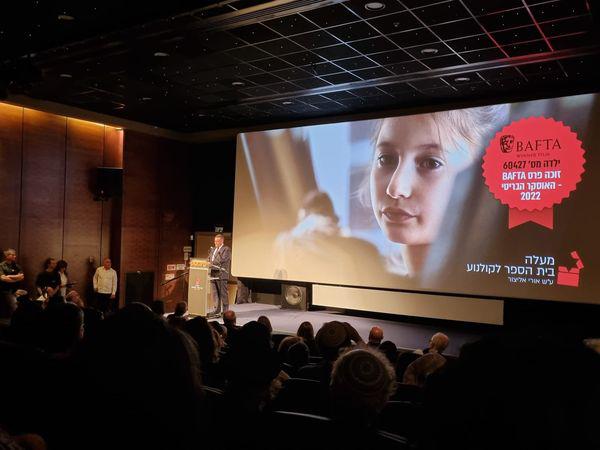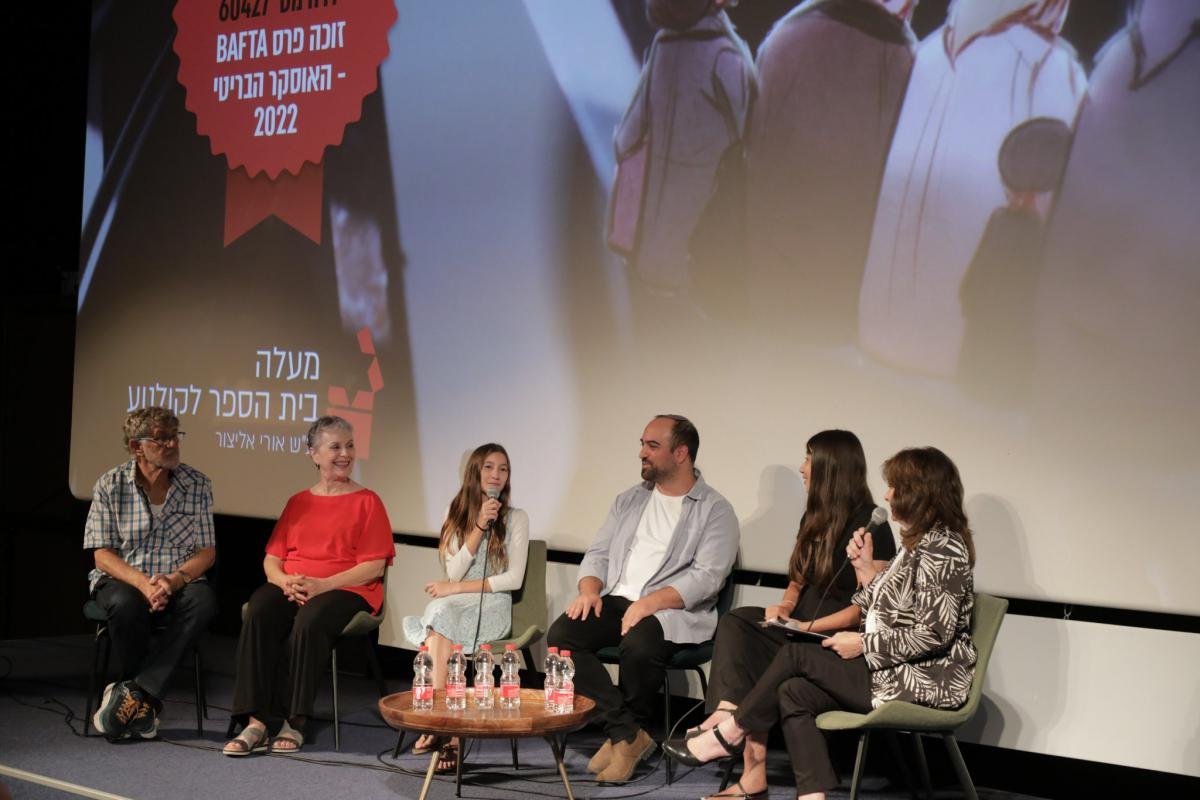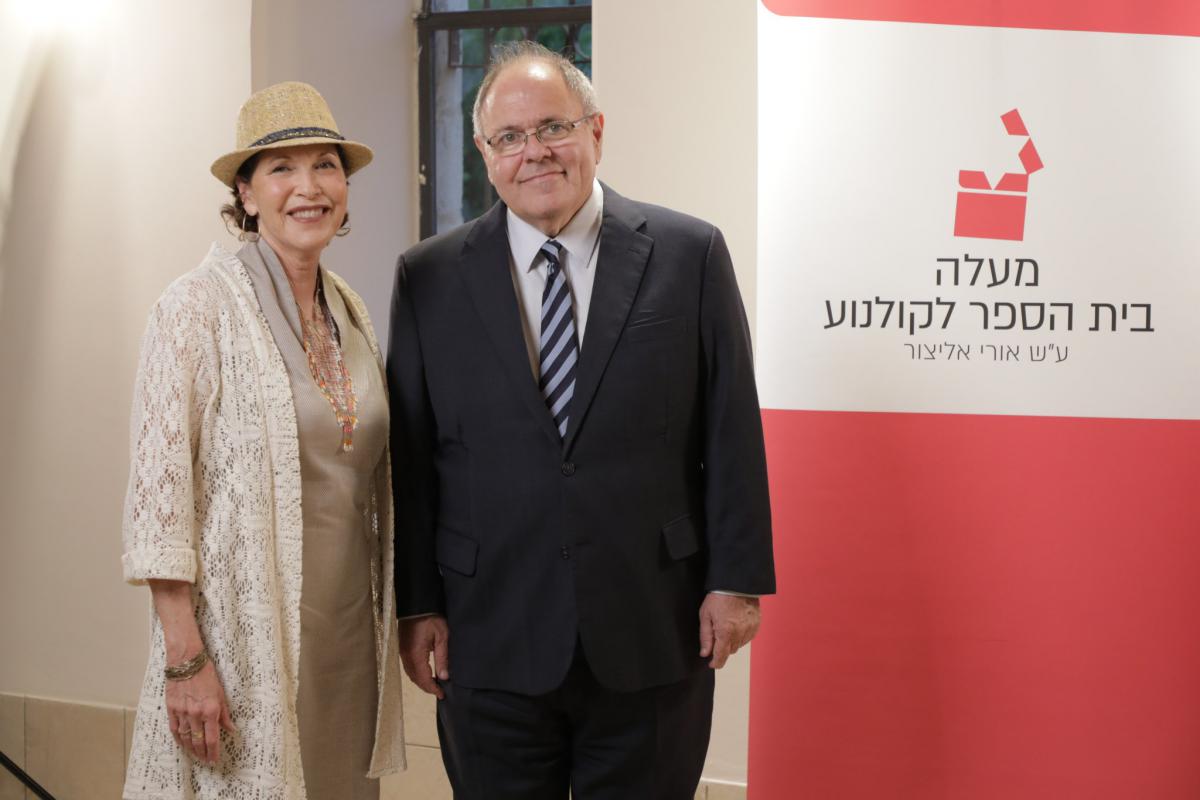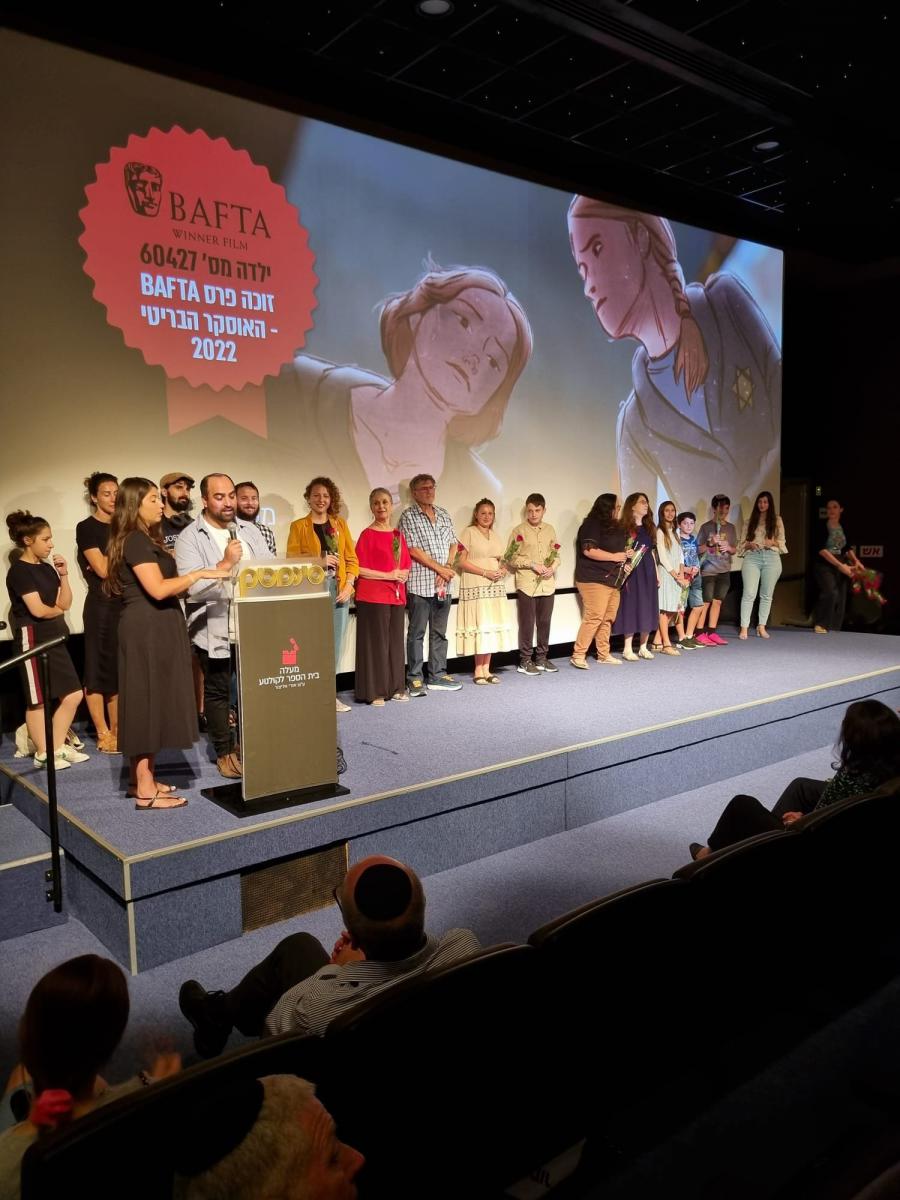







Girl Number 60427, a film by Shulamit Lifshitz and Oriel Berkovits from the Ma'aleh Film School in Jerusalem, has garnered the 2022 BAFTA Award in the Student Films category – the first Israeli film to win the prestigious award. The short film tells the fictional story of eleven-year-old "Reut," who finds her grandmother's wartime diary, in which she recorded the family's fate during the Holocaust.
Girl Number 60427 is based on the actual diary of Lifshitz's grandmother, Shifra Balitzki (née Reisman), which was deposited in the Yad Vashem Archives in 2019. Balitzki wrote the diary in Yiddish while at a Displaced Persons (DP) camp in Italy in 1946. She passed away in 1998, and during the seven-day mourning period (shiva), Lifshitz found the diary and translated it into Hebrew. "At first, we thought about making a documentary film based on the diary, but later I decided that I wanted to tell the story the way I wished that it had happened," recounted Lifshitz.
"We found the diary during the shiva, when I was eleven, like the main character in my film. But in real life, I did not reach closure the way my main character did."
Next to the impressively restrained and sensitive directing, flashes of memory represented by powerful and minimalistic animation are embedded into the fabric of the film. Oriel Berkovits, Lifshitz's brother-in-law and partner on this project, was the animator who interpolated his work into the live-action sequences. The moments of animation and the manner in which they are woven into the scenes represent the imagination, whose images arise in granddaughter Reut's mind. From the visual perspective, the animation sequences are directed and designed the way memory works: The frame design and the direction of the animation, edited together with the actors and the locations, combine to create moments of intensity that touch gently upon matters of memory and of transgenerational transmission, while facing the personal and familial consequences of loss. "We dealt quite a bit with the question of how to portray life in the camp, and how to integrate the animation into the film," Berkovits explains, and Lifshitz adds: "This was a family project all the way, starting from the leading actress, who is my niece. She far outshone all of the other child-actors who came to the auditions."
The relationship that develops between the grandchild and the grandmother as a result of the discovery of the diary is the beating heart of the film. "When we were children, we never talked to Grandma about her past, and as I got older, I realized that she had never spoken to anyone, not even to her own daughters," Lifshitz recalls.
"It was important to me to give this 'hug' to my grandmother, to whom the film is dedicated, and to use the film to conduct a dialogue with her."
After the awards ceremony in Los Angeles, the film was shown at a festive screening in Jerusalem, in the presence of Mayor Moshe Lion, British Ambassador to Israel H.E. Mr. Nigel Wigan OBE, Director of the British Council in Israel Jonathan Mandelbaum Shor, and Yad Vashem Chairman Dani Dayan. "Culture in general and film in particular are essential tools for perpetuating the memory of the Holocaust," said Dayan in his address at the ceremony.
"I want to send a special 'thank you' to the Third Generation, to which the creators of this film belong. Through them, we have been exposed to many things we were not aware of previously. The Third Generation leads the way, and allows us to connect with the personal stories of the survivors and other victims. Shoah consciousness, knowledge about the Holocaust and interest in its relevance for contemporary cultural discourse, both internationally and in the world of diplomacy, are growing rapidly. The contribution of the Third Generation is of immense value."










